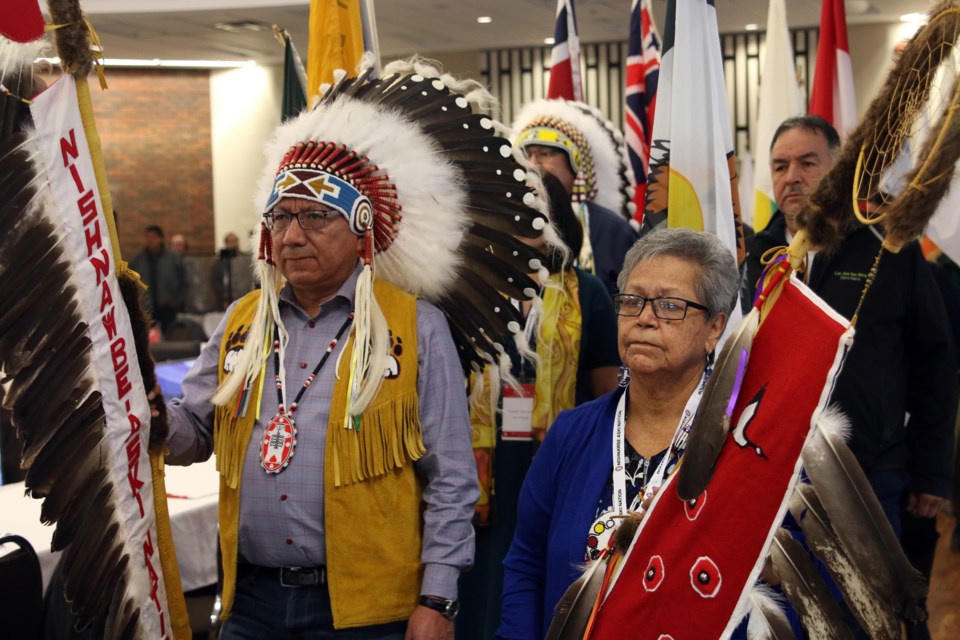THUNDER BAY - First Nation leaders say too many of their children are being apprehended by the child welfare system and in order to keep youth with their families in their own homes, First Nations need to hold jurisdiction over their own communities.
Child welfare is one of the top priorities that will be discussed during the Nishnawbe Aski Nation Fall Chief’s Assembly taking place in Thunder Bay. During the two-day assembly, chiefs and representatives from the 49 NAN communities will be discussing issues of education, health care, economic development, resource revenue sharing, and climate change.
But according to NAN deputy Chief, Derek Fox, community leaders need to take action on child welfare.
“That has been going on for a long time,” he said. “Our children being apprehended is an issue. What is the solution, what is the answer? That is going to take a collaborative effort with the chiefs, the executive, our leadership, our women, our parents, and the people in the audience here.”
Fox said he does not know what the solution will be, but one of the ideas that has already been discussed is allowing First Nations to take leadership and practice traditional laws.
“We have the Children’s Aid Society coming into our communities, taking our children,” Fox said. “Having our leadership prevent that from happening, have our leadership have a part in ensuring our children do not get apprehended and have a role in making sure our children stay where they belong, in their home communities with their families and their parents.”
Ontario Regional Chief, RoseAnne Archibald, was at the assembly on Tuesday and she said giving jurisdiction back to First Nations is extraordinarily important.
“Solutions don’t come from the outside, solutions come from communities,” she said. “That is what jurisdiction is about, about enforcing their own world views, their own laws, and their own regulations. It’s very important First Nations drive the solutions to any of the challenges they face.”
First Nations were completely self-governing before colonization, Archibald said, and legislation such as the Indian Act interfered with Indigenous people being able to practice their own laws, traditions, and culture.
Archibald added that there is a federal process on legislation to create space for First Nation laws and regulations to “assert jurisdiction over their children and look after their children in a way that is culturally appropriate and keeps families together.”
“One of the things we would like to see generally across the province is more prevention,” Archibald continued. “What are the programs and services that are available to families that will keep them out of the child welfare system? That is a really important piece of the puzzle.”
Another issue that Fox said will be a top priority for NAN chiefs is education. According to Fox, many First Nation communities, such as Fort Albany and Kashechewan First Nation, do not have teachers for certain grade levels.
“You just can’t compete with providing resources to those teachers and they end up coming to our communities and leaving,” he said.
“With the Grand Chief’s leadership and executive and the chiefs around the table, we are going to get direction to advocate and pressure both levels of government to assist us first of all with the education and providing teachers to those First Nations.”
Archibald added that education is a treaty right but it is not available to every Canadian. For First Nations people, education holds a special place in how they view the world.
“Education isn’t just Kindergarten to Grade 12 or isn’t just post-secondary,” she said. “It is a lifelong learning process. That treaty right means that those education processes and systems have to be funded properly by the federal and provincial government.”
The Chiefs Fall Assembly continues on Wednesday. The assembly, which is usually held over three days, has been condensed down to two.
